In the future, as we look back at the years dominated by COVID-19 and the policies of the government of the time, one of the emergent themes through the discourse is that of the role of research in UK society, and how research is critical to the future of our society and economy. This is visible through the rapid development of the Oxford AstraZeneca vaccine (a triumph in scientific excellence, agile internal investment, technology transfer and partnership working) but look more closely and you will see a plethora of policy documents that articulate the importance of R&D as we look towards a post COVID world. In this blog post, I explore how the government’s R&D roadmap illustrates this trajectory…

Since January 2020, the national R&D funding landscape has shifted abruptly in response to global events and a decisive policy trajectory outlined by the UK government. This includes (1) the UK’s departure from the EU and associated uncertainty of funding from the EU post-Brexit, (2), the impact of the COVID-19 crisis and resultant diversion of funding and activity and (3) the expectation that UK Universities will play a pivotal role in national economic recovery further to the lockdowns required to curb the spread of COVID.
In response to these elements, the Department for Business, Energy and Industrial Strategy published on 1 July 2020 the UK Research and Development Roadmap. The roadmap is in the developmental stage and seeks to test how the UK can:
- increase our investment in research, unlocking discoveries and applying research to solving our most pressing problems in government, industry and across society;
- become world-class at securing the economic and social benefits from research;
- support entrepreneurs and start-ups and increase the flow of capital into firms carrying out R&D enabling them to scale up;
- attract, retain and develop the talented, diverse people and teams that are essential to delivering our vision;
- take greater account of place-based outcomes in how we make decisions on R&D in the UK, ensuring that our R&D systems make their fullest contribution to our levelling up agenda;
- provide long-term flexible investment into infrastructure and institutions;
- be a partner of choice for other world-leading research and innovation nations, as well as strengthening R&D partnerships with emerging and developing countries;
- engage in new and imaginative ways to ensure that our science, research and innovation system is responsive to the needs and aspirations of our society.
But what does this mean for researchers? I’d suggest future implications will be larger investments in riskier ideas (the famous moonshot), a greater emphasis on impact (more still), more freedom of movement of researchers/scientists (theoretically at least), a more diverse research ecosystem and a huge amount of emphasis on place (as part of the broader context of levelling up – i.e. that R&D expansion will help the UK become more equal).
There is a clear expectation that Universities are a key enabler in this strategy as the UK looks towards the recovery required in the post-COVID-19 future, but, only as part of a wider system that is seeking to reduce bureaucracy. This perhaps creates tension for the policymakers given the current Whitehall perception of where bureaucracy lies (i.e. within Universities – which are thought to be far less agile than industry).
This makes it essential for anyone working in research to consider how to respond to these changes to position itself appropriately to become a net beneficiary of the shift in the funding landscape. Even though details remain scarce as to specificities of the roadmap and how it will enrich the research environment for researchers day to day….
What we don’t know, and still don’t know, is exactly how this roadmap will be administered. We were expecting further announcements this side of Christmas, however, it is looking less and less likely, with the focus of the treasury being diverted elsewhere.
So how do you prepare? I always suggest reading the political runes i.e. the overall trajectory of travel now, rather than await specific funding calls. With the national economic recovery perhaps better than expected, I would expect in 2022 we will see announcements of big investments and changes to the national research ecosystem.
As a research community, this means that we need to have a clarity of vision of the big research ideas that can transform society, ready to articulate these through our external narratives and funding calls when they arrive. Collaboration and dialogue is essential for this, and perhaps somewhat starved, thanks to COVID. So perhaps if I have one piece of advice that is to engage with colleagues and allow yourself the space to explore our big research ideas. BU has a huge amount to offer through the R&D roadmap; I’d highly recommend we collaborate and articulate how we further it to deliver the societal impact that we are so brilliant at doing as a University.
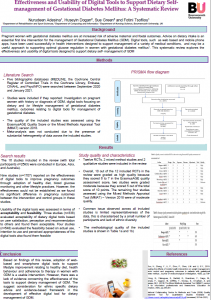
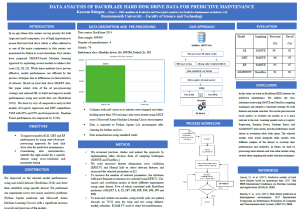
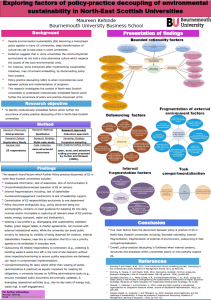
 An opportunity has arisen for an Outputs Champion for Unit of Assessment (UOA) 20 (Social Work and Social Policy) to help drive preparations for the next REF. This role would initially be until summer 2022.BU is making early preparations towards units of assessment (UOAs) for the next Research Excellence Framework (REF) exercise. Each UOA has a UOA Leader, supported by Impact and Outputs Champions. The roles are recruited through an open and transparent process, which gives all academic staff the opportunity to put themselves forward for UOA Leader roles.We are currently seeking expressions of interest (EoI) from academic staff interested in supporting outputs development for UOA 20 (Social Work and Social Policy).
An opportunity has arisen for an Outputs Champion for Unit of Assessment (UOA) 20 (Social Work and Social Policy) to help drive preparations for the next REF. This role would initially be until summer 2022.BU is making early preparations towards units of assessment (UOAs) for the next Research Excellence Framework (REF) exercise. Each UOA has a UOA Leader, supported by Impact and Outputs Champions. The roles are recruited through an open and transparent process, which gives all academic staff the opportunity to put themselves forward for UOA Leader roles.We are currently seeking expressions of interest (EoI) from academic staff interested in supporting outputs development for UOA 20 (Social Work and Social Policy).

 Postgraduate researchers and supervisors, hopefully you have seen your monthly update for researcher development e-newsletter sent earlier last week. If you have missed it, please check your junk email or you can
Postgraduate researchers and supervisors, hopefully you have seen your monthly update for researcher development e-newsletter sent earlier last week. If you have missed it, please check your junk email or you can 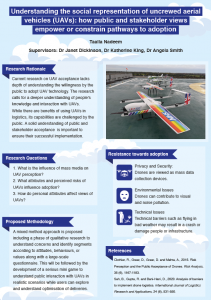

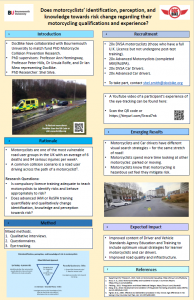
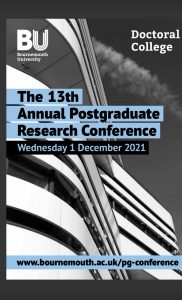
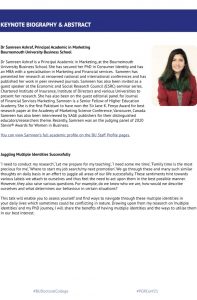















 3C Event: Research Culture, Community & Can you Guess Who? Friday 20 March 1-2pm
3C Event: Research Culture, Community & Can you Guess Who? Friday 20 March 1-2pm Beyond Academia: Exploring Career Options for Early Career Researchers – Online Workshop
Beyond Academia: Exploring Career Options for Early Career Researchers – Online Workshop UKCGE Recognised Research Supervision Programme: Deadline Approaching
UKCGE Recognised Research Supervision Programme: Deadline Approaching SPROUT: From Sustainable Research to Sustainable Research Lives
SPROUT: From Sustainable Research to Sustainable Research Lives BRIAN upgrade and new look
BRIAN upgrade and new look ECR Funding Open Call: Research Culture & Community Grant – Apply now
ECR Funding Open Call: Research Culture & Community Grant – Apply now ECR Funding Open Call: Research Culture & Community Grant – Application Deadline Friday 12 December
ECR Funding Open Call: Research Culture & Community Grant – Application Deadline Friday 12 December MSCA Postdoctoral Fellowships 2025 Call
MSCA Postdoctoral Fellowships 2025 Call ERC Advanced Grant 2025 Webinar
ERC Advanced Grant 2025 Webinar Update on UKRO services
Update on UKRO services European research project exploring use of ‘virtual twins’ to better manage metabolic associated fatty liver disease
European research project exploring use of ‘virtual twins’ to better manage metabolic associated fatty liver disease